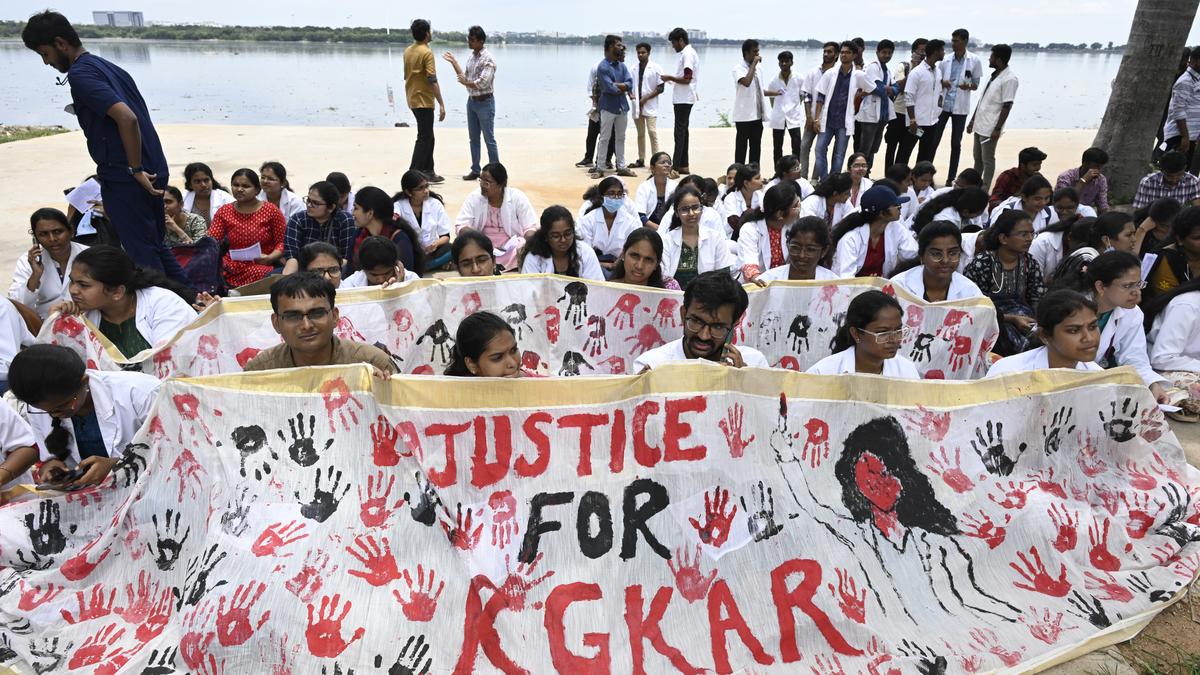
Guardians of health, victims of harassment Premium
The Hindu
Female doctors in Telangana face sexual harassment, violence, and inadequate security in government hospitals, highlighting urgent need for systemic change.
On a sultry afternoon in mid-May, a middle-aged man walked into an Area Hospital in the western part of Hyderabad, seeking relief from scabies, a contagious skin disease that causes itching and rashes. The duty doctor — a young woman in her early 30s — explained the treatment, administered the prescribed cream on his hand, and left the patient to rest in the emergencyward of the secondary-care health centre.
But when she returned an hour later to examine the affected area, the man suddenly unzipped his trousers and exposed himself, leaving the doctor momentarily paralysed by shock. The doctor froze for a few seconds before she finally bolted from the ward, her voice trembling as she frantically called for security. “It took me 10 minutes to find them and have the man removed from the ward,” she recounts.
The doctor shared her traumatic experience to highlight the pervasive issue of sexual harassment while taking part in a solidarity rally held in front of the Osmania Medical College (OMC) in Hyderabad on August 20, following the recent rape and murder of a female trainee doctor at Kolkata’s R.G. Kar Medical College and Hospital on August 9.
“While it might shock many, such incidents are disturbingly common for doctors, especially women, working in government hospitals. We face these threats regularly, and it’s a reminder of the need for stronger security and support systems at the workplace,” she says.
That incident, unfortunately, was not an isolated one. Female healthcare professionals across government hospitals in Telangana are increasingly finding themselves in unsafe and hostile environments, where the very sanctity of their workplace is under constant threat.
Despite the alarming frequency of such incidents, they often find themselves grappling with a system that offers little protection. The doctor, like many of her colleagues, has learned to balance caution with resilience, but the emotional toll is undeniable. “We come to work every day, prepared to handle medical emergencies, not personal threats. It is disheartening that the very places where we dedicate ourselves to healing others can become sources of distress for us,” she rues, her words echoing the urgent need for systemic change to ensure the safety and well-being of those on the front lines of healthcare.
A senior resident doctor at the Government ENT Hospital in Hyderabad recounts a distressing incident from a few months ago. During a night shift in the emergency ward, she and her colleagues were handling two cases simultaneously. One was a critical emergency, wherein the patient was promptly treated. The other patient had come in with a simple complaint of ear pain, which the doctor says she personally examined. After prescribing medicines, she discharged him. The rest of the night passed without incident.











